The 6 things I wish I had known before buying an air conditioner
Avoid the mistakes I made with these key considerations

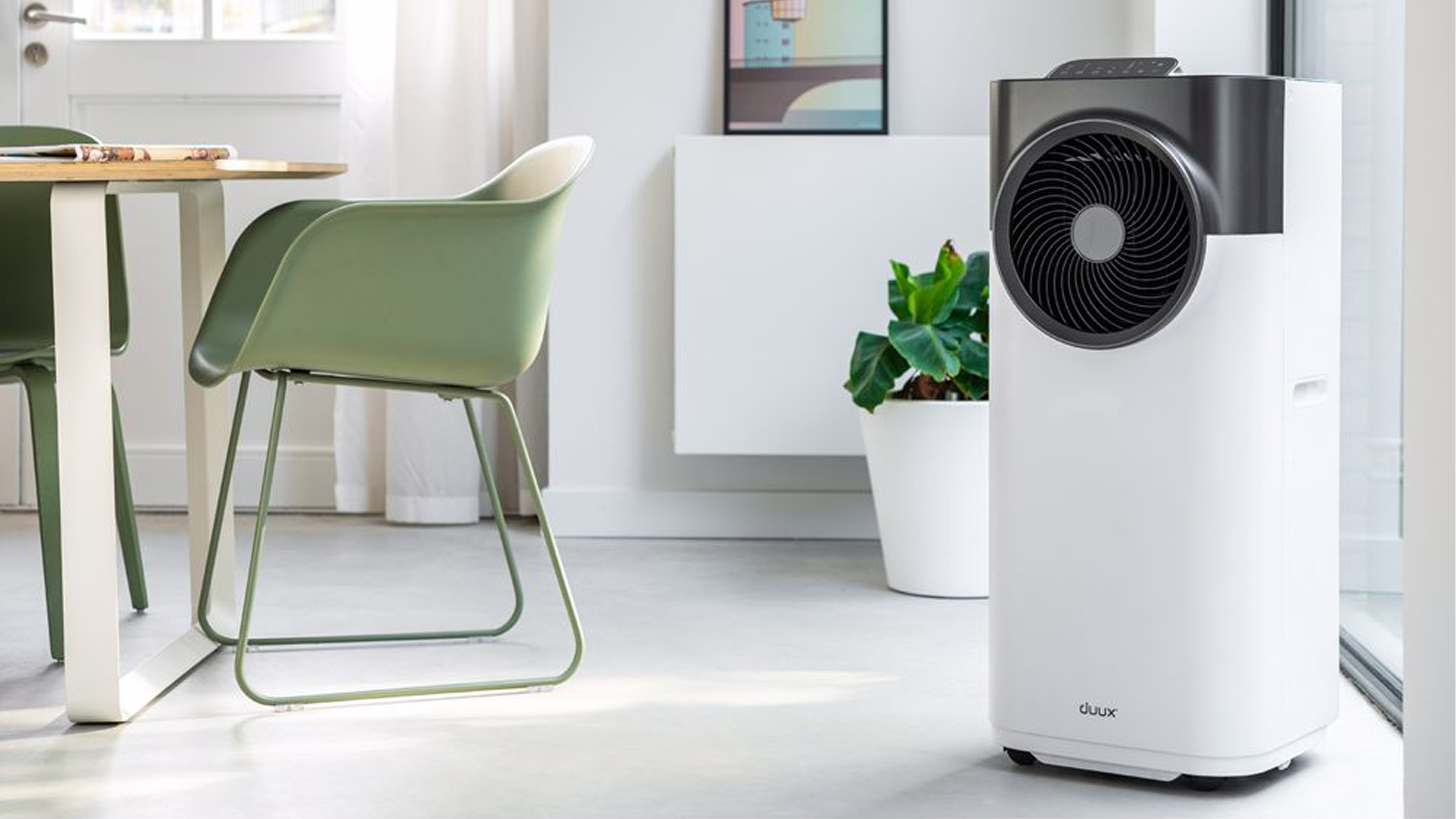
With the sun intermittently peering through the clouds and rain, transforming our living spaces into veritable ovens, the thought of buying an air conditioner becomes not just a luxury but a downright necessity.
I remember the sweltering sleepless night in London with my first baby that drove me to buy my air conditioner. However, my hasty search to find the best portable air conditioner for my home would have been a lot breezier if I'd been aware of what to look out for before clicking 'add to basket'.
Alongside a few nuggets of wisdom I’ve gleaned from my own experience, I asked air treatment experts for their take on the things you should know before buying an air conditioner vs say, a fan, to ensure you invest in the ideal unit for your specific needs and avoid making the mistakes I made.
1. Size matters more than you think
With portable air conditioners coming in all shapes and sizes, one of the most important lessons I learned from buying my air conditioner is the importance of finding the right size unit for your space.
'The size of your air conditioner is crucial as this directly impacts its efficiency and effectiveness,' explains Joshua Warren, air conditioner expert at AO.
'A unit that is too small for your room will struggle to cool your space adequately, while one that is too large will cycle on and off frequently, which wastes energy and costs you more money.'
'Make sure you do the research first to calculate the cooling capacity needed based on the size of the room or space you want to cool.'
Sign up to our newsletter for style inspiration, real homes, project and garden advice and shopping know-how
Now I know that it's really crucial to measure your room and understand BTU (British Thermal Unit) ratings to find the perfect match.
'Higher BTU means more cooling efficiency. For example, a 14,000 BTU air con is suggested to be used for a room around 200-450ft². Our AC516S can cool down a room around 300ft² for 7˚C (12.6˚F) in 30 minutes,' explains Dreo's Product Director, Paul Chan.
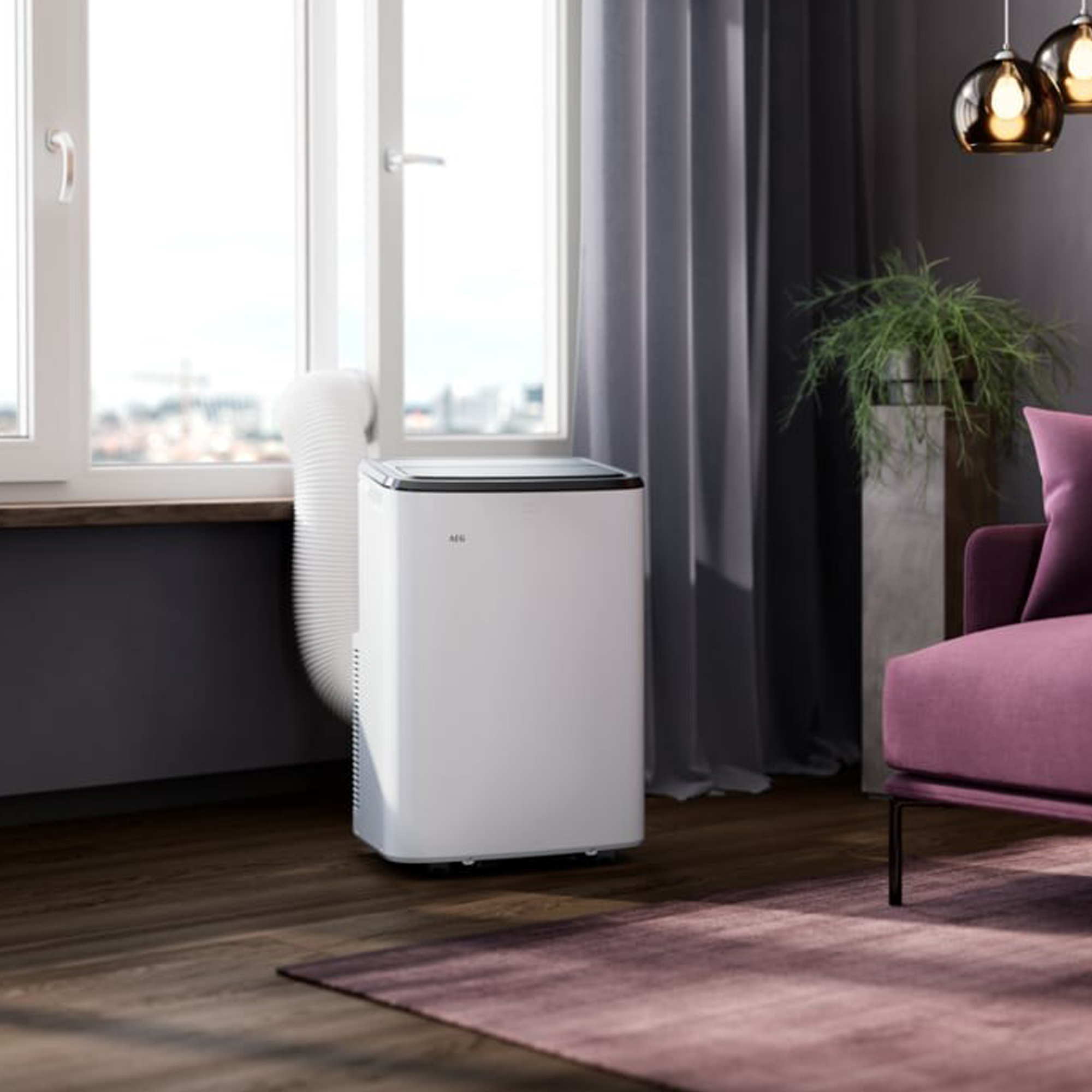
2. Energy efficiency is a big deal
While the initial cost of a highly efficient model might be higher, it’s an investment worth making, especially when you factor in how much it costs to run a portable air conditioner.
'When you’re in the market for a new air conditioner unit, it’s important to choose one with a good energy efficiency rating,' explains AO's Joshua Warren.
'Higher ratings mean lower energy consumption and lower utility bills over time. These units are typically more efficient and can save you money in the long run, so shop around for the best possible models.'
3. Don't ignore the installation requirements
Embarrassingly, I really didn't think the installation part of it through when buying my own on a roasting summer's night and it turns out, I was fairly clueless about what to do with it when it arrived. It's important not to skip proper installation to make sure you get optimal performance and longevity from your machine.
A poorly installed unit can lead to inefficiencies, higher energy consumption, and even safety hazards. It's worth hiring a professional to get the job done right, if necessary.
'Consider the installation requirements of the air conditioner. Some units require professional installation, while others are designed for easy setup by homeowners,' explains Joshua Warren from AO.
'Check if your space has the necessary electrical requirements and if any modifications or additional accessories are needed for installation.'
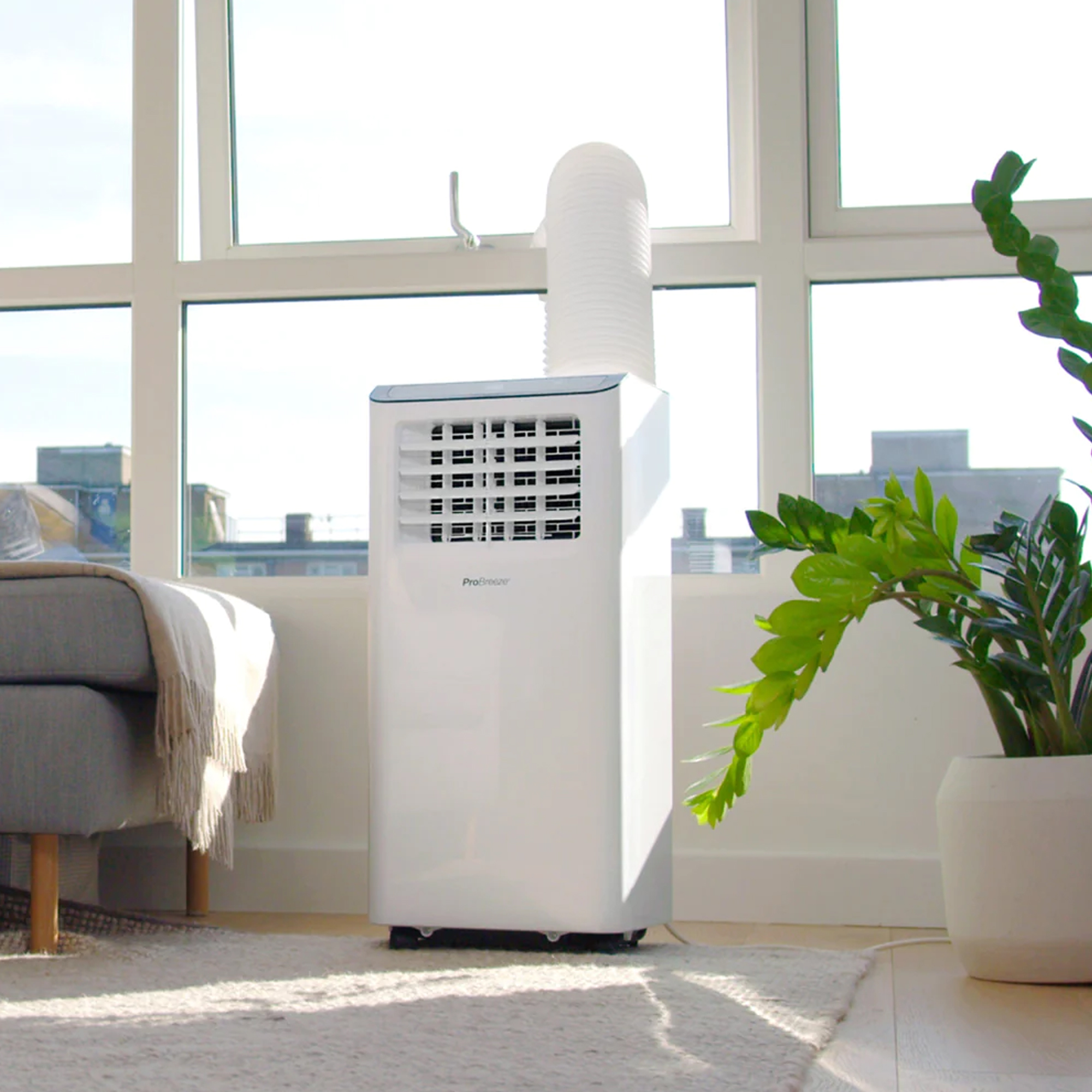
4. Placement is crucial
Where you place your air conditioner can significantly affect its efficiency too.
Installing your unit in a shady spot prevents it from overworking, while some of the worst places to put an air conditioner include placing it in a corner where airflow is obstructed which can lead to uneven cooling.
'The best place to put an air conditioner is near a window because of the ventilation,' explains Paul Chan, Dreo's Product Director.
'Also, make sure it's placed in a room that is a suitable size according to your air con’s BTU.'
5. Consider the maintenance needs
Once the air conditioner is in the right spot, it’s not a 'set it and forget it' situation. It'll require regular maintenance to keep it working well and this includes cleaning it effectively or replacing filters. Neglecting to do these things can lead to reduced efficiency and costly repairs down the line.
'Looking after your appliances will go a long way to helping them look after you,' says Joshua Warren, AO's air conditioner expert.
'Regular cleaning of filters and coils is an essential part of maximising its performance and longevity. Some units have more accessible maintenance procedures than others, so consider ease of maintenance when making your choice.'
6. Noise level can make or break a night's sleep
When I bought my air conditioner, I went for a budget option, not thinking through the noise it might make in the stillness of night. The soft hum during the day became a significant disturbance come bedtime.
So don't do what I did and check the noise levels of the unit you have your eye on before you buy, especially if it’s going into a bedroom or a home office. Opt for models that have been rated for their quiet operation to ensure a peaceful environment.
'All air conditioner units make some noise, yet the level of this noise can vary significantly between models,' explains AO's expert Joshua.
'If you're sensitive to noise or plan to place the unit in a bedroom or quiet space, try to find a model specifically designed for quiet operation. Keep in mind that reviews can give you a good indication of how noisy a particular unit might be.'
Joshua adds that some portable air conditioners have extra smart features such as a night mode and wifi connectivity, which can be pretty useful in helping you manage your unit easily and keep running costs as low as possible.
These are just a few of our favourite portable air conditioners that feature smart tech like this.
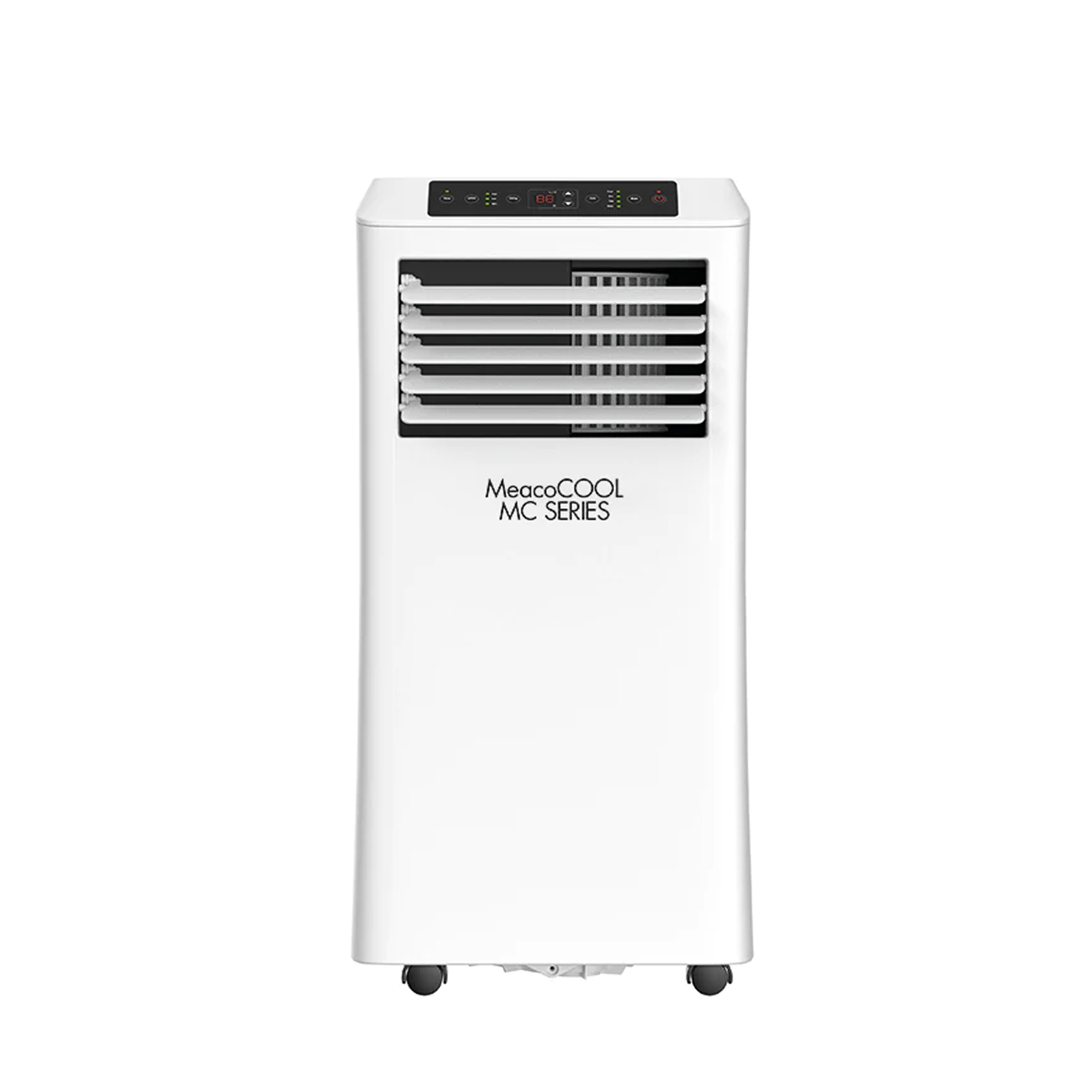
The MeacoCool MS Series is affordable, lightweight, compact, energy-efficient, and easy to use. We tested the smallest model at 7000 BTUs, but the series also includes options of 8000, 9000, 10000, 12000, and 14000 BTUs to fit any room size.
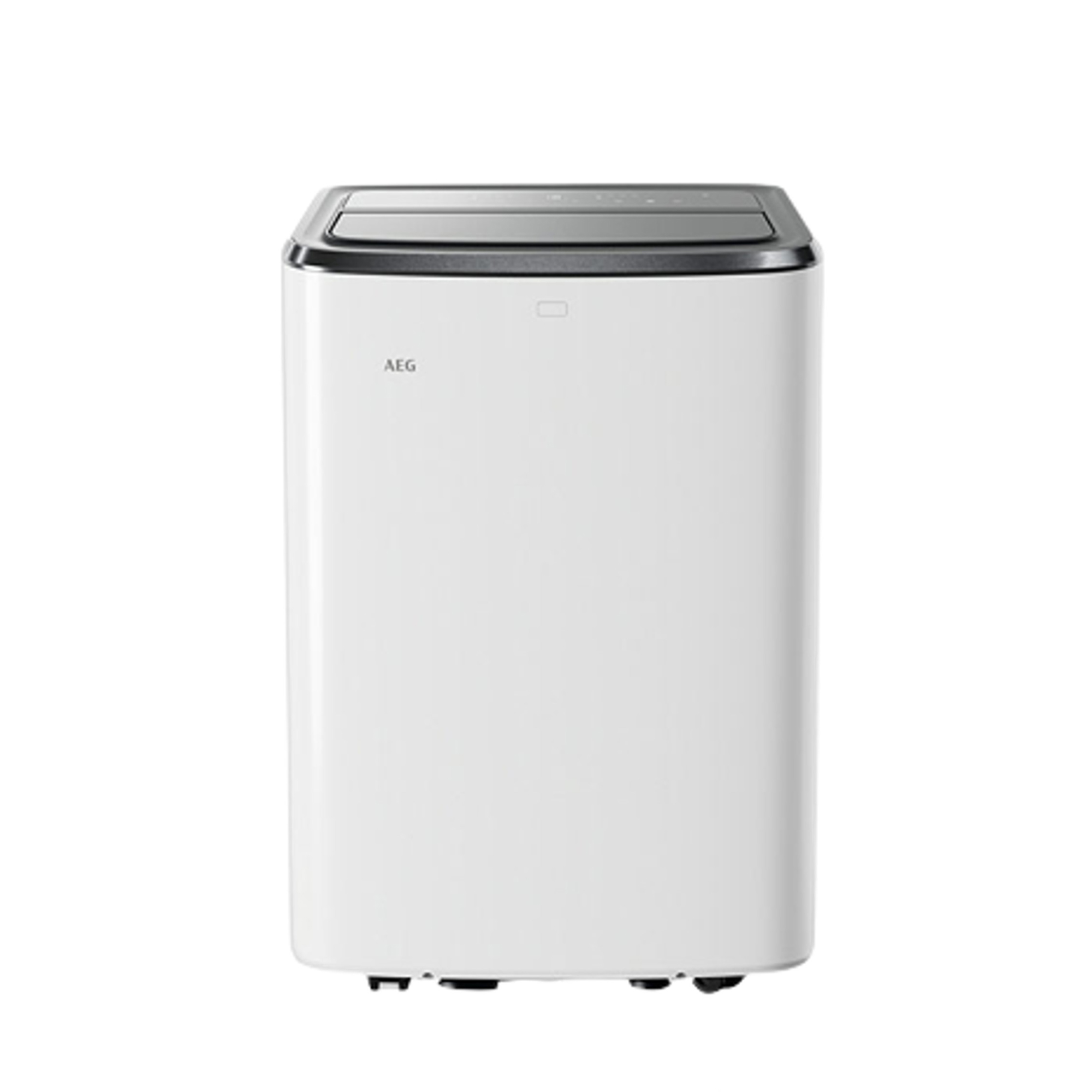
A sleek and powerful 3400W portable air conditioner, this unit is user-friendly, relatively quiet compared to most, and features WiFi connectivity. It can cool a room quickly, although it comes with slightly higher running costs.
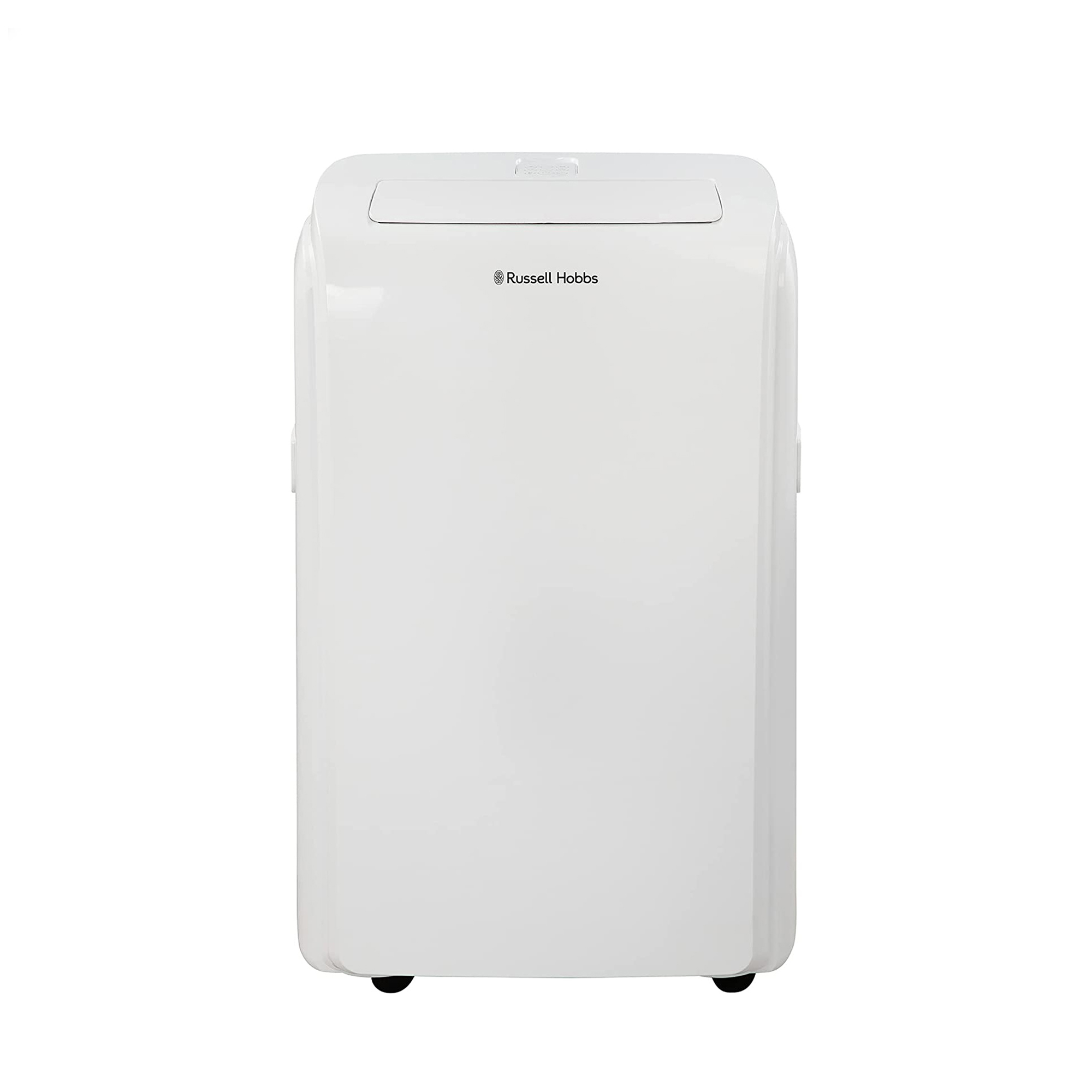
The Russell Hobbs RHPAC11001 offers a lot more than cooling, with its 4-in-1 functionality, serving as an air conditioner, fan, dehumidifier, and heater.
FAQs
What features are most important to consider when buying a portable air conditioner?
When choosing a portable air conditioner, prioritise the cooling capacity to ensure it effectively cools down your space, so you can stay comfortable even on the most uncomfortably hot days.
If you aren't looking to spend a great deal, weigh up whether you actually need an air conditioner. Compare an air conditioner with some of the best fans, for example, or even with an air cooler to see if these might suit your budget better.
Energy efficiency is also key, so look for models with high EER ratings or Energy Star certification to save on electricity.
You'll also need to consider the noise level, ensuring it’s quiet enough for sleep and is easy to move between rooms when you want to.
What to avoid in portable air conditioners?
When searching for the right model, steer clear of air conditioners that are too large for your space; they’ll cool the area too quickly without removing enough humidity.
Avoid units with low energy efficiency ratings too, as they will lead to higher electricity bills. Plus, buying without researching the noise levels of the unit, especially if it's placed in a bedroom, will lead to an awful night's sleep. I learned that the hard way.
There you have it, the most important things I wish I'd known before buying an air conditioner.
Forking out for one is a hefty investment, so take the time to do your research. Read lots of reviews, compare the different models, and seek recommendations from those who've got one already.
Afterall, what works for one household may not suit another, and firsthand experiences will help provide valuable insights.

Jenny is Senior Digital Editor and joined the team in 2021, working across Ideal Home, Real Homes, Homes & Gardens, Livingetc and Gardeningetc. Since getting on the property ladder, her passion for interior design and gardening has taken on a new lease of life. She loves collecting and salvaging unique items (much to her other half's despair) but sniffing out stylish home bargains is her one true love.